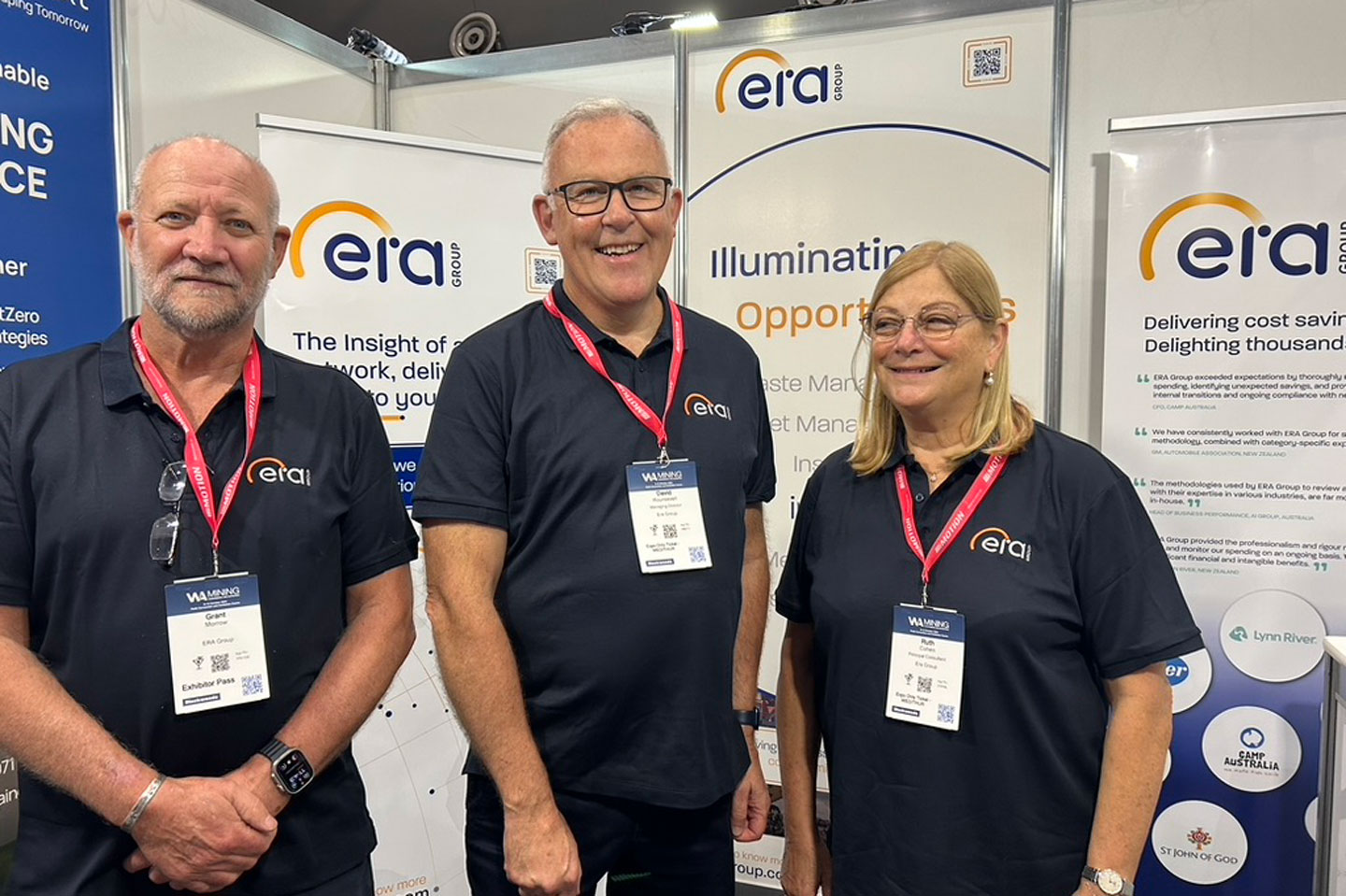

Many businesses know there are probably savings they can make, but when it comes down to finding them, they discover a number of barriers. They either don’t know how, think it will take too much time and don’t have the expertise, or the data they need isn’t available or in the right format.
This is where Grant Morrow from ERA Group steps in. He’s the guy who can tell you that your company currently buys 32 different pens from six different suppliers ranging from 18c up to $10 a piece. Then he’ll ask you if you really need them all, will find a way for your business to do just as good a job with a lower pen bill and structure your purchases to meet your specific requirements.
While that may seem like a relatively inexpensive savings on the surface, over years with no one noticing, it can turn into a significant cost for a business.
This is just one of the examples of potential savings that Mr Morrow could find when asked to examine business costs. Or imagine a scenario reported in 2012 when a German council employee was found to have hoarded more than 20 tonnes of office supplies, including pens, sticky notes and cleaning products. Over three decades it was estimated the stash was worth six figures.
ERA Group – formerly Expense Reduction Analysis – services a range of industries from automotive and transport to manufacturing, not-for-profits, education, hospitality and construction. While Mr Morrow is based in Perth and most of his clients are West Australian, he works all over the country in the consumable space and can draw on the expertise of others in the group nationally and, if needed, internationally.
“Ultimately, just about every industry I have come across, from childcare to mining, could do with someone having a look at their costs,” says Mr Morrow. “I tend to spend most of my time across mining, agriculture and boarding schools looking at their consumables, but I have done work in numerous other industries.
“At the end of the day, you go where you can make a difference and organisations can use your skills; with cost management skills you do make a difference. If you can save a business $100,000 a year, that might save them having to put their fees up, enable them to employ that extra person, not to mention the various other uses savings can be used for.”
Indirect costs are largely ERA’s focus. Any costs which the business incurs doing business can be put under their microscope and they are as varied as mobile phones, travel, PPE, fuel, freight, insurance, medical consumables, photocopying, site maintenance, rental fees, recruitment costs or cleaning. ERA has an in-depth understanding of how suppliers operate and the markets they operate in.
Mr Morrow says in a lot of cases companies don’t have the skills, capability or time to dedicate to looking through items line by line to find savings. They might also have unintentional blind spots or just not know enough about the areas they are looking into. It’s difficult for a CEO or a CFO to be an expert in every indirect cost category, which is where ERA comes in.
“We understand the tricks of the trade and where to go looking for that savings. We’re in the market day-in day-out whereas organisations might only look at office supplies once every three or four years, if that. Depending on where an organisation’s focus is, we can look at single or multiple areas of the business and get to the bottom of your spending and find areas for savings.”
ERA Group’s fee is a percentage of the savings they make each company. They work on a contingency. If they don’t find anything they don’t get paid – so they tend to look pretty hard.
“When we first start work with a client, we look at their general ledger and see what’s contestable and identify where savings are likely to be.”
The initial discovery process takes about four – six weeks and generally looks at 12-months of data from invoices. This is to understand where the spending patterns are, what they are spending with whom and why.
At the end of the discovery process, the client receives a detailed report on their spending patterns. It will detail what Mr Morrow has found and whether he thinks savings can be made or not. If new supply contracts are needed, ERA runs the tender process on behalf of the client to find the best supplier fit.
“Following the tender process, the client is presented with an options report detailing the tender responses from which they make their choice of suppliers. ERA doesn’t tell the client who to choose but once they have decided, we will implement their choice.
“We then monitor the contract and stay with the client for up to three years to manage the performance of the supplier over that time. During this stage we are looking to ensure that the supplier is delivering what was promised and agreed. It’s amazing what you find during this phase.
“We’ll also look for any trends and tend to become a part of an organisation in terms of that particular category. During this phase, ERA are also able to start benchmarking, so the organisation understands how it is performing, something that is becoming increasingly important for organisations.”
ERA work with medium to large-sized companies in the space where they don’t have their own in-house experts. For example, in a boarding school, one of Mr Morrow’s specialty areas, they often have limited back-office staff, don’t have the necessarily capabilities or time.
“On the positive side, finding a business – such as a school – $100,000 in savings can help with new projects, keeping fees down or maybe new infrastructure. It’s pretty cool when you can help an organisation out like that and can see where your work is making a difference.”






